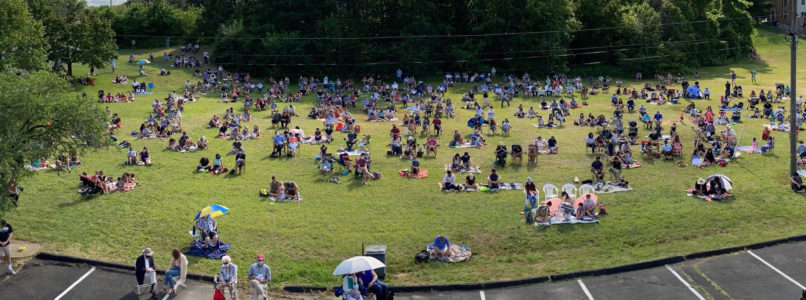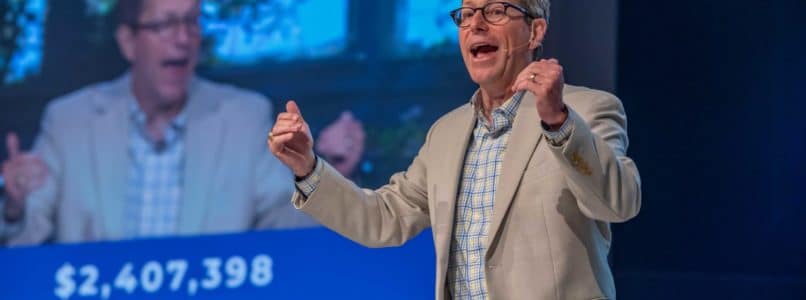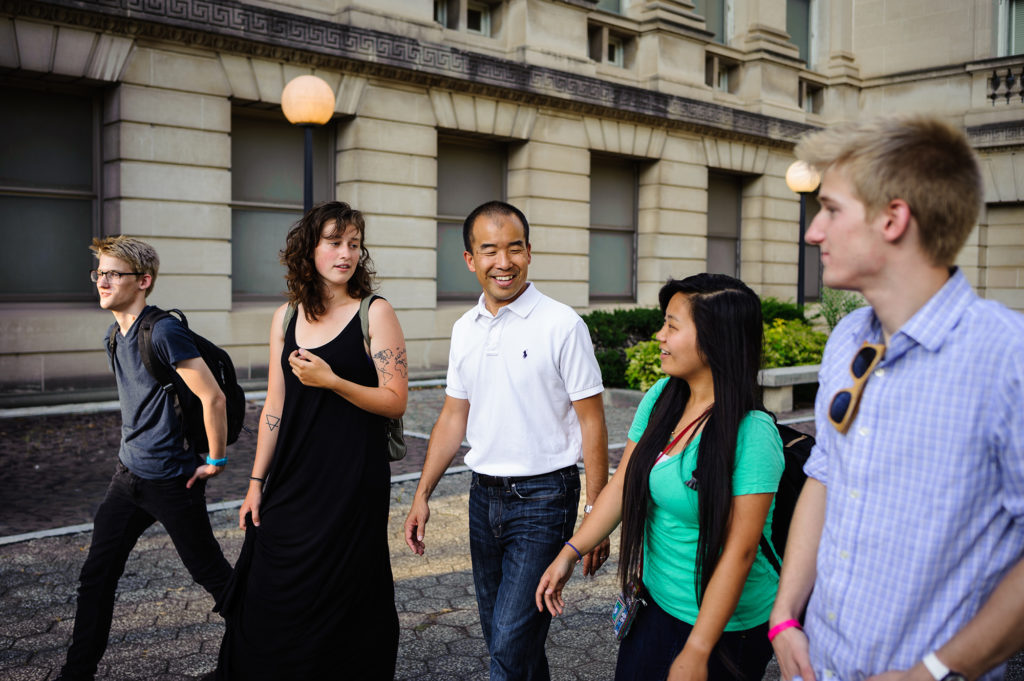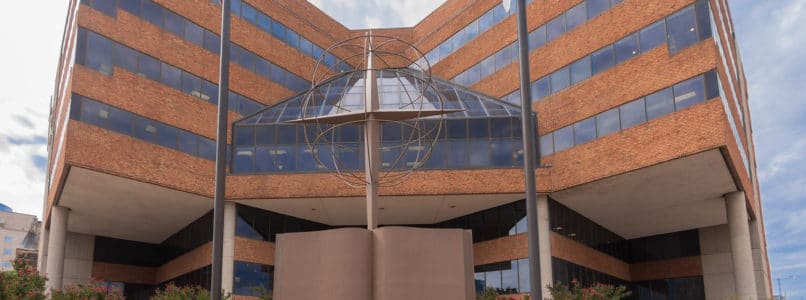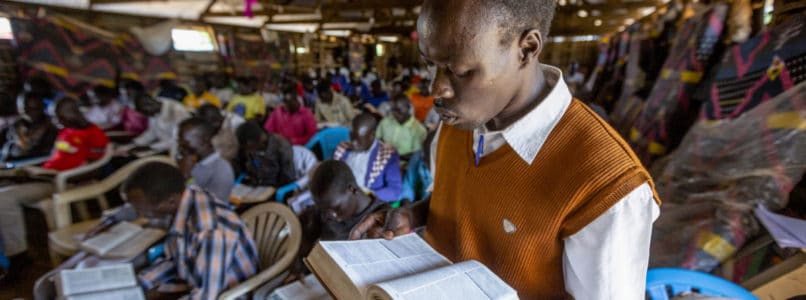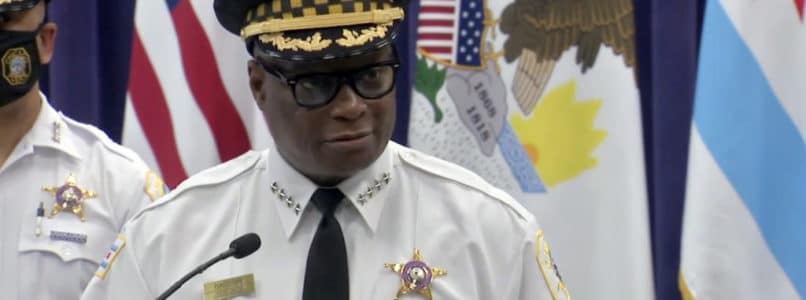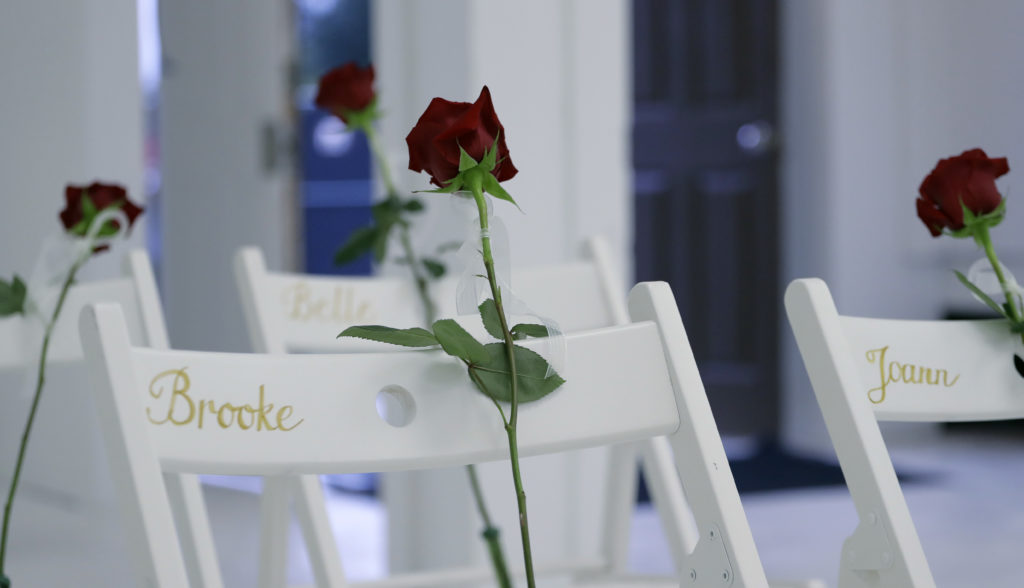SARALAND, Ala. (BP) – SBC President Ed Litton has appointed a seven-member task force to oversee a third-party review into the handling of sexual abuse claims by the SBC Executive Committee.
Calling formation of the task force his “first priority,” Litton said the seven members of the task force “represent pastors, as well as professionals in law, counseling, and abuse advocacy.” According to a news release today (July 9), the task force will be chaired by Bruce Frank, lead pastor of Biltmore Baptist Church of Arden, N.C. The vice chairman is Marshall Blalock, pastor of First Baptist Church of Charleston, S.C.
“I believe the members of this team are men and women who genuinely pursue God and seek the truth and desire for survivor voices to be heard,” Litton said in a statement. “I am grateful for their willingness to serve our Convention in this important role.”
Additionally, Litton announced two advisors to the task force with “expertise in handling sexual abuse dynamics”: Rachael Denhollander, an attorney and survivors’ advocate; and Chris Moles, a pastor, counselor and author. Denhollander and Moles previously served the SBC as members of a sexual abuse advisory group formed in 2018 by former SBC President J.D. Greear.
In response to the announcement of the task force, the Executive Committee said in a statement it “looks forward to cooperating with the presidential task force in order to bring resolution to the matter and restore confidence with Southern Baptists.”
Messengers to the 2021 SBC Annual Meeting approved a motion June 16 calling on the new SBC president to appoint a task force composed of members of Southern Baptist churches and “experts in sexual abuse and the handling of sexual abuse-related dynamics.” Under the terms of the motion, the task force’s purpose is to “ensure that the third-party review includes an investigation into any allegations of abuse, mishandling of abuse, mistreatment of victims, a pattern of intimidation of victims or advocates, and resistance to sexual abuse reform initiatives.”
The motion required Litton, who was elected SBC president June 15, to appoint the task force within 30 days. The task force will have the discretion to begin its own review or to oversee an independent review already initiated by the Executive Committee. It is required to make the findings public and present them to messengers to the 2022 SBC Annual Meeting with recommendations for action.
“The messengers of the 2021 SBC annual meeting spoke clearly and overwhelmingly regarding this important task,” Frank, the task force’s chairman, said in a statement. “I appreciate the team Dr. Litton has assembled, and we will be getting to work immediately. Your prayers are greatly appreciated.”
In the release, Litton said in formation of the task force he “sought counsel and recommendations from experts in the field and from trusted advisors.” He said the task force includes “respected pastors” in the SBC “who are independent of the Executive Committee and who do not have a conflict of interest related to the review,” as well as laypersons “with professional expertise for this assignment.”
The motion was approved amid controversy over allegations made by former Ethics & Religious Liberty Commission President Russell Moore. Moore, who resigned from his post in May, charged in two letters leaked to news media that calls to address sexual abuse in the SBC had been “stonewall[ed]” by leaders. Audio clips from two meetings Moore described were later posted online by a former ERLC staff member.
Ronnie Floyd, president and CEO of the SBC Executive Committee, announced June 11 that Guidepost Solutions had been hired to conduct an independent review of the Executive Committee’s handling of those issues.
The motion was offered by Grant Gaines, pastor of Belle Aire Baptist Church in Murfreesboro, Tenn., who said it was “the least we can do for abuse survivors.” Gaines told messengers the appointment of a task force was necessary “in order for this investigation to be truly external, independent and unbiased,” and that the Executive Committee “can’t be the ones to hold themselves accountable.”
Under terms of the motion, the independent review could span January 2000-June 2021 and could include any Executive Committee members and staff serving during that time. Executive Committee members and staff are asked to waive attorney-client privilege “in order to ensure full access to information and accuracy in the review.”
The task force is to receive a written report 30 days before the 2022 SBC Annual Meeting. The report is to be made public within a week, along with suggested actions for messengers.
“Southern Baptists, I urgently call you to pray for this process and to bear the burden alongside this task force as they pursue truth, identify issues, and move forward toward greater health in the area of response to abuse,” Litton said in a statement.
The members of the task force are:
Chair: Bruce Frank, lead pastor of Biltmore Baptist Church of Arden, N.C.
Vice Chair: Blalock, pastor of First Baptist Church of Charleston, S.C.
John Damon, chief executive officer of Canopy Children’s Solutions, Jackson, Miss., and member of Broadmoor Baptist Church, Madison, Miss.
Liz Evan, judicial law clerk at Tennessee Court of Criminal Appeals, Nashville, and member of Hilldale Baptist Church, Clarksville, Tenn.
Heather Evans, director of Evans Counseling Services, Coopersburg, Pa., and member of Cornerstone Presbyterian Church in Center Valley, Pa.
Andrew Hébert, lead pastor of Paramount Baptist Church, Amarillo, Texas.
Bucas Sterling III, senior pastor of Kettering Baptist Church, Upper Marlboro, Md.
Here are bios of members of the task force and two advisors to the task force:
Members:
Marshall Blalock (vice chair) has served as pastor of First Baptist Church of Charleston, S.C., since July of 1997. A native of Charleston, Marshall grew up attending First Baptist School from second grade through high school graduation, becoming a member of the church as a teenager. A graduate of Furman University and Southwestern Baptist Theological Seminary, Marshall was ordained at First Baptist in August 1981. He previously served as pastor of St. Helena Baptist Church in Beaufort, S.C., and Sullivan’s Island Baptist Church in the Charleston area. Since June 2015, when a racially motivated shooting took place at nearby Emanuel AME Church in Charleston, Marshall has been working to bring racial reconciliation to the city and beyond. He previously served as president of the South Carolina Baptist Convention.
John Damon’s clinical and executive leadership experience spans more than 25 years. Joining Canopy in 1993, he began as a therapist at the CARES Center Jackson. He went on to become clinical director and serve in the capacity of CARES Center director and chief operating officer, before transitioning to chief executive officer in 2013. John is the past president of the Mississippi Association of Child Caring Agencies, past president and board member for the National Association for Children’s Behavioral Health in Washington, D.C., and past president of the board of directors for the Behavioral Health Society of the Mississippi Hospital Association. He currently serves on the Mississippi Children’s Justice Commission. John has also served on other committees including the Governor’s Healthcare Task Force, the Mental Health Task Force (chair), Mississippi’s Children’s Mental Health Task Force, and the Mississippi Autism Advisory Committee. He has presented to the U.S. Senate Caucus Committee as well as to state, regional and national audiences on foster care, mental health and substance abuse. John holds a Bachelor of Science in psychology from Mississippi College, a Master of Arts in marriage and family therapy from Reformed Theological Seminary and earned a doctorate in philosophy in clinical psychology from Jackson State University. He completed his residency in child psychology at University of Mississippi Medical Center.
Bruce Frank (chair), lead pastor of Biltmore Church of Arden, N.C., is committed to communicating God’s Word clearly and with application to today’s culture. Bruce was born in Atlanta but grew up in Oklahoma and Texas. He became a follower of Christ at the age of 17 through the influence of his three brothers. Bruce earned an undergraduate degree in finance from Texas Tech University, an M.Div. from Southwestern Baptist Theological Seminary and a D.Min. from Luther Rice Seminary. He, his wife Lori and their family moved to Asheville, N.C., from Humble, Texas, in August 2008 to join the Biltmore Family.
Liz Evan, a criminal law attorney, lives in the Clarksville, Tenn., area and worships with her family at Hilldale Baptist Church. Liz drafted and advocated a Tennessee law to criminalize clergy sexual abuse. The bill unanimously passed and was signed into law in May 2021. Before she became an attorney, Liz briefly worked as a high school choir director. Her husband of 18 years served in the Marines and is now an Army special forces pilot. Together, they have three children.
Heather Evans is a licensed clinical social worker and director of Evans Counseling Services, a private group counseling practice in Coopersburg, Pa. She has more than 19 years of clinical experience, with a specialization in women’s issues, particularly sexual trauma, sex trafficking, and care for its victims. Heather received a doctorate in clinical social work from the University of Pennsylvania. Her dissertation highlighted complex trauma and post-traumatic growth in victims of domestic sex trafficking. Heather is co-founder of VAST (Valley Against Sex Trafficking) Coalition in the Lehigh Valley, Pa., area. She is devoted to training and equipping service providers. In 2013, Heather received the Allied Professional Award from Crime Victims Council of the Lehigh Valley for outstanding commitment to victims’ services. Heather is an adjunct professor of global trauma recovery at Missio Theological Seminary and travels and leads trips nationally and internationally, with the goal of partnering with and training trauma-healing caregivers.
Andrew Hébert has served as the lead pastor at Paramount Baptist Church since 2016 and has served in pastoral ministry since 2005. He is passionate about investing his life in others and developing disciples who love Jesus Christ. He is committed to Christ-centered biblical preaching, evangelism, discipleship, prayer, missions, and consistent leadership.
Andrew and his wife Amy met while students at Criswell College in Dallas. They married in 2007 and have four children: Jenna, Austin, Mackenzie and Brooklyn. Andrew completed a bachelor’s and master’s degree at Criswell College and a doctorate in leadership and discipleship at Southern Baptist Theological Seminary. He has served as a pastor, an educator and a denominational leader in various capacities within the SBC.
Bucas Sterling has served as the senior pastor of Kettering Baptist Church since April 2000. He attended Prince George’s Community College, the University of North Dakota and Washington Bible College. He holds degrees in criminal justice and pastoral theology. He is also a graduate of E.K. Bailey Ministries Expository Preaching and has attended educational studies through Proclaimers Place at Georgetown College, in Georgetown Ky., and Oxford University in Oxford, England. He served four years with the U.S. Air Force. His ministry vision includes reaching the world with the Gospel of Christ through the doors God opens for us while deliberately making disciples, edifying the community in areas of need. Pastor Sterling, a lifelong resident of Prince Georges County, Md., has been happily married to his wife, Carolyn, since December 1983. The Lord has blessed them with three children – daughters LaTonya and Virtre’ and son Tori, two sons-in-law, William and Ricardo. They also have four grandchildren – Jasmine, Jordon, Sterling and Corrari.
Advisors:
Rachael Denhollander is an attorney, advocate, and educator who became known internationally as the first woman to file a police report and speak publicly against USA Gymnastics team doctor Larry Nassar, one of the most prolific sexual abusers in recorded history. As a result of her activism, more than 250 women came forward as survivors of Nassar’s abuse, leading to his life imprisonment. Rachael and her husband Jacob live in Louisville, Ky., with their four young children.
Chris Moles is an ordained minister with the Christian and Missionary Alliance, senior pastor of The Chapel in Winfield, W.Va., and a certified biblical counselor (ACBC and IABC). He is author of “The Heart of Domestic Abuse: Gospel Solutions for Men Who use Violence and Control in the Home” and a contributor to “Becoming a Church that Cares Well for the Abused.” He is group facilitator in batterer intervention and prevention. He holds a B.A. in Bible from Cedarville College an M.A. in ciblical counseling from Faith Bible Seminary. He is working toward a D.T.L. from Bakke Graduate University.

